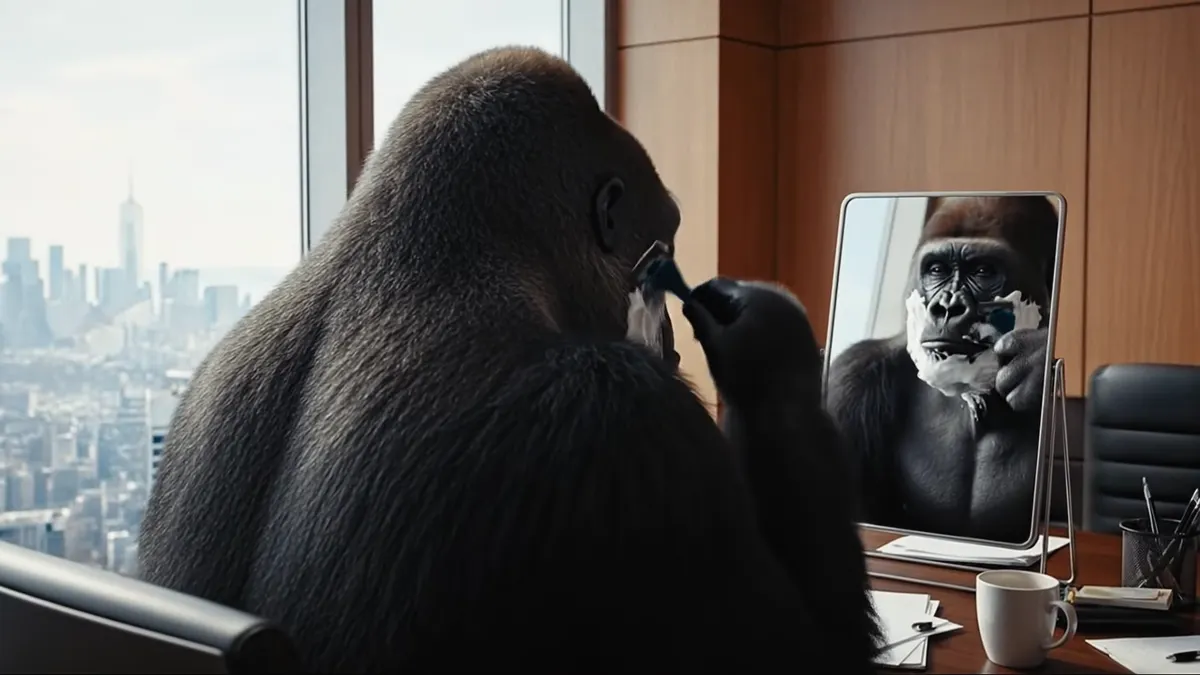Keith Weed will retire from Unilever in May, ending not just a 35-year run at the consumer packaged goods giant, including nearly a decade as its CMO, but also an era for marketing thought leadership. In spearheading brand duties at one of the top advertisers by media spend in the world, Weed has continually leveraged his large platform to sound calls for greater diversity in advertising and media, ramp up efforts to improve sustainability and hold platforms like Google and Facebook more accountable for contributing to what he frequently refers to as a digital media "swamp."
Weed's focus on promoting collaborative initiatives to better the health of advertising holistically have often earned him industry decorations, including the WFA Global Marketer of the Year award in 2018. Unilever was also named the most effective marketer globally for the the third consecutive year by the Effie Index in April, marking its sixth time winning the prestigious title since 2011 — one year after Weed stepped up as marketing chief.
But even as Weed has become an outsized personality among his peers, often identifiable by his stylish eyewear and favoring of brightly colored linen sport coats, the future of the position that elevated his career to influential heights appears to be in question. Unilever has yet to name a replacement for Weed since announcing his plans for retirement in December, shortly after it was revealed that CEO Paul Polman would also step down. The company did not have any details to share on changes impacting its marketing structure following Weed's retirement when reached via email by Marketing Dive.
But in April, The Drum reported that the company may eliminate the CMO position entirely with Weed's departure. If Unilever did decide to do away with the CMO role, it would neither be especially surprising nor an altogether grave alarm bell for other marketers, according to industry watchers. In some ways, the move might be a next step on the path toward melding data, media and traditional branding that Weed has set the company on, and which is becoming the gold standard for brands across a number of categories today.
"Keith is an institution," Keith Johnston, a research director at Forrester, told Marketing Dive in a phone interview. "When an icon like that leaves your company, it gives you an opportunity to do something differently.
"The only way that I can see that they're going to delete the [CMO] role is because they're going to do something strategically with that position," Johnston said.
The ripple effect
The possibility that Unilever could sunset the CMO role with Weed gone still might cause marketers concern, since other companies may look to the packaged goods conglomerate as an industry bellwether and model to emulate. Recent history shows the move away from the CMO role is not beyond the pale, even for organizations that have built a reputation around the quality of their brands and advertising. Coca-Cola got rid of its global CMO title with the retirement of longtime marketer Marcos de Quinto in 2017, with the then-newly created role of chief growth officer (CGO), held by Francisco Crespo, essentially standing in as the next in line in to handle those duties.
"Keith is an institution. When an icon like that leaves your company, it gives you an opportunity to do something differently."

Keith Johnston
Research director, Forrester
The emphasis on growth over traditional marketing titles has continued to rise in the digital era, reflecting the pressures marketers are facing to become stewards of data, technology and demand generation, all while making those tools cohere under the umbrella of brand building, Scott Davis, chief growth officer at the consultancy Prophet, told Marketing Dive. In that sense, the CMO role for many organizations does not necessarily go away, but rather gets reshaped, with the "M" sometimes losing relevance based on industry trends.
"Any time this happens, whether it's at Coke or it's at Unilever, these are all marketing titans that in a lot of ways set the standards for decades," Davis said in a phone interview. "A lot of marketers look up to them to not only get the lessons learned and the wisdom but also to see what they're doing next."
However, Coke’s pivot, which came amid a larger leadership shakeup, would not necessarily be a model that Unilever follows in a post-Weed era, Johnston explained. Both companies operate in the packaged goods category, but the scale and recognition of their brands differ greatly. Unilever owns some household names, like Dove, Lipton tea and Axe, but also plenty of brands in highly commoditized spaces, where it is easier for the label to fade into the shelf, Johnston said. For those reasons, Unilever might mirror one of its closer competitors instead of a company like Coke in forming a new marketing function.
“It's probably going to be closer to P&G [Procter & Gamble], where Marc [Pritchard] is the chief brand officer, but marketing is functioning at the business level for all of those brands with [individual] presidents,” Johnston said.
And even if the reasoning for eliminating the CMO role has differed from company to company, the ripple effect the news causes remains the same. Unilever pursuing that course of action will almost certainly reverberate across the industry and light a fire for many marketers looking to preserve the relevance of their job.
"The Coke example really did send a signal to the market that [it's time to] stop talking about change, let's act on change; let's stop talking about growth and let's get to growth — and marketing's going to take a hit," Johnston said. "There's no doubt that [Weed’s retirement] is going to send another signal to the market."
Laying the groundwork
Regardless of whether the Unilever CMO title stays or leaves, Weed and his team have taken care to lay the groundwork for a significant shift in the company's marketing priorities going forward. In late March, they revealed the Trusted Publishers network, a new initiative that seeks to add greater rigor to vetting the platforms and publishers the marketer spends with. Guidelines introduce more stringent standards than Unilever's storied 3Vs framework of ensuring viewability, verification and value, including additional protections around ad fraud, brand safety, data access and more. The project is ambitious, and one that Unilever hopes to eventually conduct most of its digital marketing business through as headwinds like tougher data privacy regulations loom large on the horizon.
"[Weed] is, in his final salvo, trying to help put up protectionary borders for marketers that protect consumers at the same time. He's taken a moral high ground."

Scott Davis
Chief growth officer, Prophet
"Online advertising credibility is still a global, industry-wide problem and as the world's second largest advertiser, we have a responsibility to use our scale and influence to address this issue," Weed said in statement around the network's announcement.
There are smaller shifts occurring as well that lend more credence to the idea of a broader overhaul to Unilever's marketing. Behind the scenes, Unilever has been building three individual marketing procurement teams that are tailored to its different core business categories, a notable change from a prior two-tiered model touching across the organization, The Drum reported in April.
"These other systems like procurement are enabling bad behavior, just as much as the old version of marketing might be tired," Johnston said.
Such tweaks are aligned around the marketing industry's broader push to wrest more control over areas like first-party data while also improving transparency and consumer trust in a period where both are perilously low. On that front, Weed has continued to champion a brighter future for marketers and the ad industry as a whole, while still cautioning that the process will take time, deeper collaboration and demand more initiatives akin to the Trusted Publishers network.
"He is, in his final salvo, trying to help put up protectionary borders for marketers that protect consumers at the same time," Davis said.
"He's taken a moral high ground in terms of what does great marketing do, what does great marketing look like and what does it stand for," Davis added. "He wants to leave that legacy behind."




















